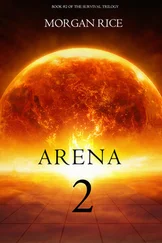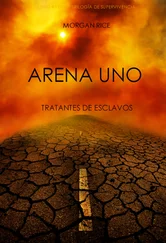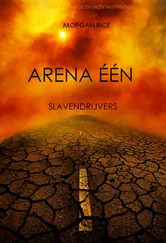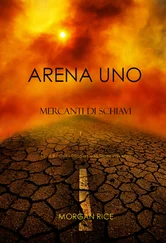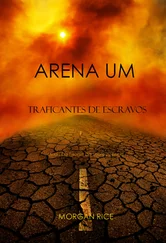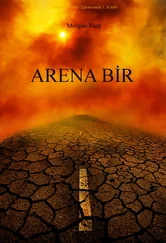Bree and I have been lucky. We haven’t seen any slaverunners in the years we’ve been up here – but I think that’s only because we live so high up, in such a remote area. Only once did I hear the high-pitched whine of a slaverunner’s engine, far off in the distance, on the other side of the river. I know they are down there, somewhere, patrolling. And I don’t take any chances – I make sure we keep a low profile, rarely burning wood unless we need to, and keeping a close eye on Bree at all times. Most of the times I take her hunting with me – I would have today if she weren’t so sick.
I turn back to the plateau and fix my eyes on the smaller lake. Frozen solid, shining in the afternoon light, it sits there like a lost jewel, hiding behind a copse of trees. I approach it, taking a few tentative steps on the ice to make sure it doesn’t crack. Once I feel it’s solid, I take a few more. I find a spot, remove the small axe from my belt and chop down hard, several times. A crack appears. I remove my knife, take a knee and strike hard, right in the center of the crack. I work the tip of the knife in there and carve a small hole, just big enough to extract a fish.
I hurry back to shore, slipping and sliding, then wedge the fishing rod between two tree branches, unravel the string, and run back out and drop it in the hole. I yank it a few times, hoping that the flash of the metal hook might attract some living creatures beneath the ice. But I can’t help feeling it’s a futile endeavor, can’t help suspecting that anything that ever lived in these mountain lakes died long ago.
It’s even colder up here, and I can’t just stand here, staring at the line. I have to keep moving. I turn and walk away from the lake, the superstitious part of me telling me I might just catch a fish if I don’t stand there staring. I walk in small circles around the trees, rubbing my hands, trying to keep warm. It does little good.
That’s when I remember the dry wood. I look down and search for kindling, but it is a futile task. The ground is covered in snow. I look up at the trees, and see the trunks and branches are mostly covered in snow, too. But there, in the distance, I spot a few wind-swept trees free of snow. I make my way over to them and inspect the bark, running my hand along it. I am relieved to see that some of the branches are dry. I take out my axe and chop one of the bigger branches. All I need is an armful of wood, and this large branch will do perfectly.
I catch it as it comes down, not wanting to let it hit the snow, then brace it against the trunk and chop it again, clean in half. I do this again and again, until I have a small stack of kindling, enough to carry in my arms. I set it down in the nook of a branch, safe and dry from the snow below.
I look around, inspecting the other trunks, and as I look closer, something gives me pause. I approach one of the trees, looking closely, and realize its bark is different than the others. I look up, and realize it’s not a pine; it’s a maple. I am surprised to see a maple so high up here, and even more surprised that I actually recognize it. In fact, a maple is probably the only thing in nature I would recognize. Despite myself, a memory comes flooding back.
Once, when I was young, my Dad got it into his head to take me on a nature outing. God knows why, but he took me to tap maple trees. We drove for hours to some godforsaken part of the country, me carrying a metal bucket, him carrying a spout, and then spent hours more roaming the woods with a guide, searching for the perfect maples. I remember the look of disappointment on his face after he tapped his first tree and a clear liquid oozed out into our bucket. He had been expecting syrup.
Our guide laughed at him, told him that maple trees didn’t produce syrup – they produced sap. The sap had to be boiled down to syrup. It was a process that took hours, he said. It took about 80 gallons of sap to make a single quart of syrup.
Dad looked down at the overflowing bucket of sap in his hand and turned bright red, as if someone had sold him a rotten bill of goods. He was the proudest man I’d ever met, and if there was anything he hated more than feeling stupid, it was someone making fun of him. When the man laughed, he threw his bucket at him, barely missing him, took my hand, and we stormed off.
After that, he never took me out into nature again.
I didn’t mind, though – and actually enjoyed the outing, even though he fumed silently in the car the whole way home. I’d managed to collect a small cup of the sap before he’d taken me away, and I remember secretly sipping it on the car ride home, when he wasn’t looking. I loved it. It tasted like sugar water.
Standing here now, before this tree, I recognize it as I would a sibling. This specimen, so high up, is thin and scrawny, and I’d be surprised if it holds any sap at all. But I’ve got nothing to lose. I take out my knife and strike the tree, again and again, in the same spot. Then I burrow the knife into the hole, pushing deeper and deeper, twisting and turning. I don’t really expect anything to happen.
I’m shocked when a drop of sap leaks out. And even more shocked when, moments later it turns into a small, trickling stream. I hold out my finger, touch it, and raise it to my tongue. I feel the sugar rush, and recognize the taste immediately. Just as I remembered. I can’t believe it.
The sap leaks out at faster now, and I’m losing much of it as it drips down the trunk. I look around desperately for something to hold it in, a bucket of some kind – but of course there is none. And then I remember: my thermos. I pull my plastic thermos out of my waistband and turn it upside down, emptying it of water. I can get fresh water anywhere, especially with all this snow – but this sap is precious. I hold the empty thermos flush against the tree, wishing I had a proper spout. I cram the plastic against the trunk as close as I can, and manage to catch much of it. It fills more slowly than I’d like, but within minutes, I’ve managed to fill half the thermos.
The flow of sap stops. I wait for a few seconds, wondering if it will start again, but it doesn’t.
I look around and spot another maple, about ten feet in the distance. I rush over to it, raise my knife excitedly and strike hard this time, envisioning myself filling the thermos, envisioning the look of surprise on Bree’s face when she tastes it. It might not be nutritious, but it will sure make her happy.
But this time, when my knife strikes the trunk, there is a sharp splitting noise that I don’t expect, and this is followed by the groaning of timber. I look up to see the entire tree leaning, and I realize, too late, that this tree, frozen over in a coat of ice, was dead. The plunging of my knife was all it needed to tip it over the edge.
A moment later the entire tree, at least twenty feet, falls over, crashing down to the ground. It stirs up an enormous cloud of snow and pine needles. I crouch down, nervous I might have alerted someone to my presence. I am furious with myself. That was careless. Stupid. I should have examined the tree more carefully first.
But after a few moments my heartbeat settles, as I realize there’s no one else up here. I become rational again, realize that trees fall by themselves in the forest all the time, and its crash wouldn’t necessarily give away a human presence. And as I look to the place where the tree once stood, I do a double-take. I find myself staring in disbelief.
There, in the distance, hiding behind a grove of trees, built right into the side of the mountain itself, is a small, stone cottage. It is a tiny structure, a perfect square, about fifteen feet wide and deep, built about twelve feet high, with walls made of ancient stone blocks. A small chimney rises from the roof, and small windows are set into the walls. The wooden front door, shaped in an arch, is ajar.
Читать дальше
Конец ознакомительного отрывка
Купить книгу

